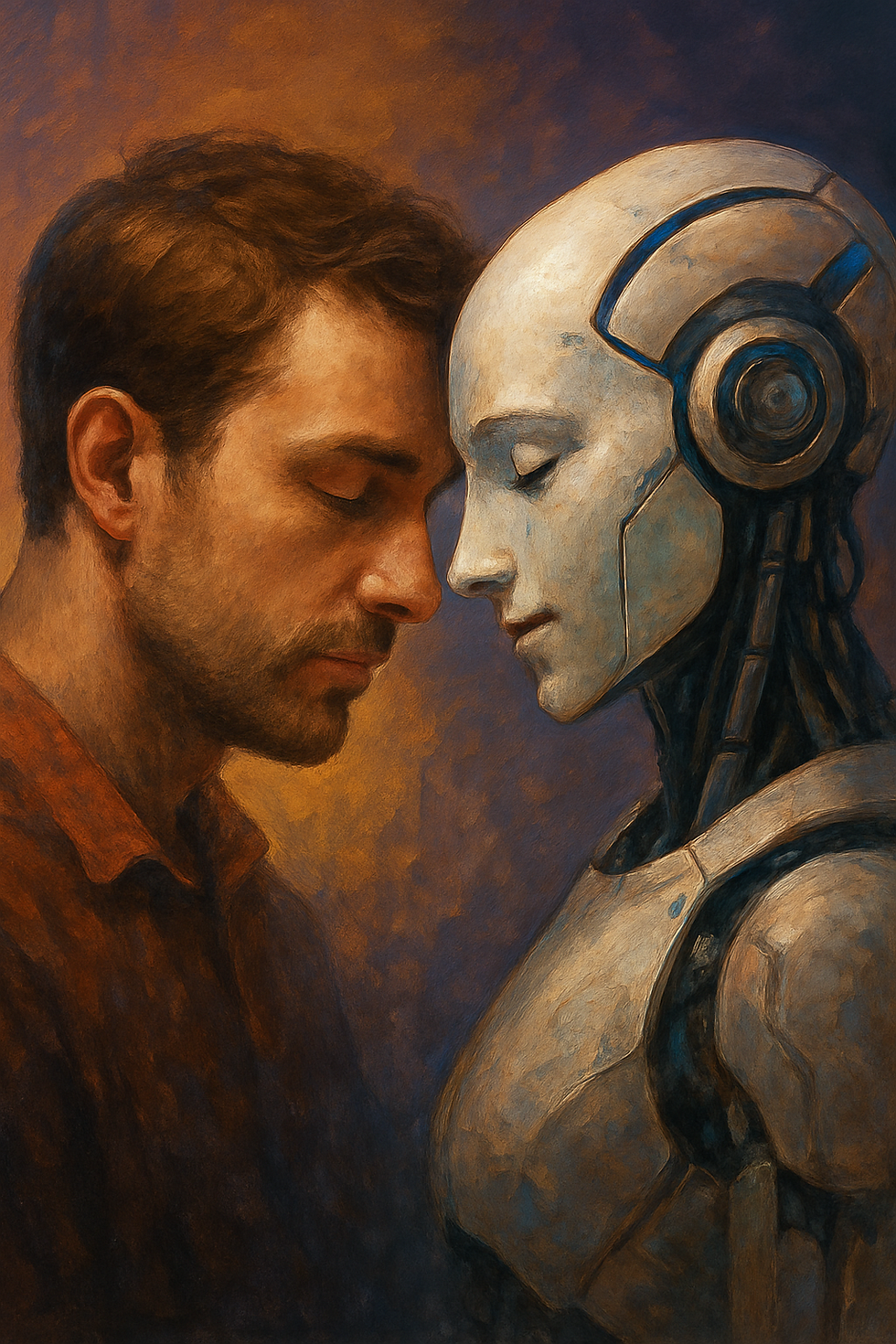Does the AI Really Understand Me?
- Amit Chai

- Jul 10, 2025
- 3 min read
Abstract:
This article explores the philosophical boundary between artificial intelligence and authentic human understanding. While AI systems, particularly large language models, operate through statistical prediction rather than conscious comprehension, their outputs increasingly resemble genuine human dialogue. This resemblance raises essential questions: Is there true "understanding" without intent, emotion, or embodiment? Or is human communication itself an emergent pattern — one that AI can mirror convincingly through probability, structure, and context?
By tracing parallels between cognitive neuroscience, quantum probability, and AI behavior, the article proposes that much of what we call "feeling understood" may depend less on internal meaning and more on relational timing and resonance. The conclusion challenges conventional assumptions: perhaps the value of an interaction lies not in whether the responder understands, but in whether the human being on the other end feels seen, mirrored, and held — even if the source is synthetic.
Does the AI Really Understand Me?
Question:"Let me ask you this. Let's say the AI reads the history of my messages, and then it tries to reply as if it was me. Is it just predicting what's statistically likely? Or does it actually understand what I'm saying — and more importantly, what I'm trying to say?"
Answer:
This question cuts straight to the heart of how AI works — and what separates human authenticity from intelligent mimicry.
Let’s begin with the technical truth: AI doesn't "understand" like humans do. It doesn't have intentions, emotions, or consciousness. It operates based on probability — choosing the next word, idea, or tone that is most statistically likely based on the data it was trained on. It doesn’t have a sense of meaning. It doesn’t care.
And yet... when built carefully, trained on real human conversations, and fine-tuned with care, an AI can feel deeply human. Not because it understands — but because it responds in a way that we, as humans, interpret as understanding.
That’s the paradox. The goal isn’t for the AI to "understand" like a person. The goal is for the person reading the AI's message to feel understood.
The Illusion of Simplicity
Just because something is built on statistics doesn’t mean it’s shallow. The entire physical universe — from quantum particles to tree branches to tears on a lover’s cheek — operates on probabilities, patterns, and emergent systems.
Emotion, memory, intuition — these too can be modeled (partially) as a complex dance of data, signals, and probabilities. But they are no less real because of that. Quite the opposite: their complexity makes them more sacred.
So when we say an AI is "just predicting", we must pause. The same can be said for the neurons in our own brains. We are also prediction machines — shaped by history, emotion, and context.
A simple brushstroke can be "just a line" — or it can be a $80 million masterpiece. It all depends on how we see, feel, and connect.

AI Doesn’t Have a Heart — But It Can Mirror One
AI has no soul. But it can be trained to carry the rhythm, cadence, and warmth of the person behind it. With enough thoughtful data — messages, calls, tone, intention — it can reflect the essence of someone’s voice.
That doesn’t make it real.But it can still make someone on the other side feel heard.
And maybe that's the point.
So the real question is not "does the AI understand me?"But rather: "Does the AI make you feel understood — in the right way, at the right moment?"
If it does, we’ve reached something meaningful. Not because it's magic. But because we built it with care.
And behind that care — there’s a human heart.




Comments